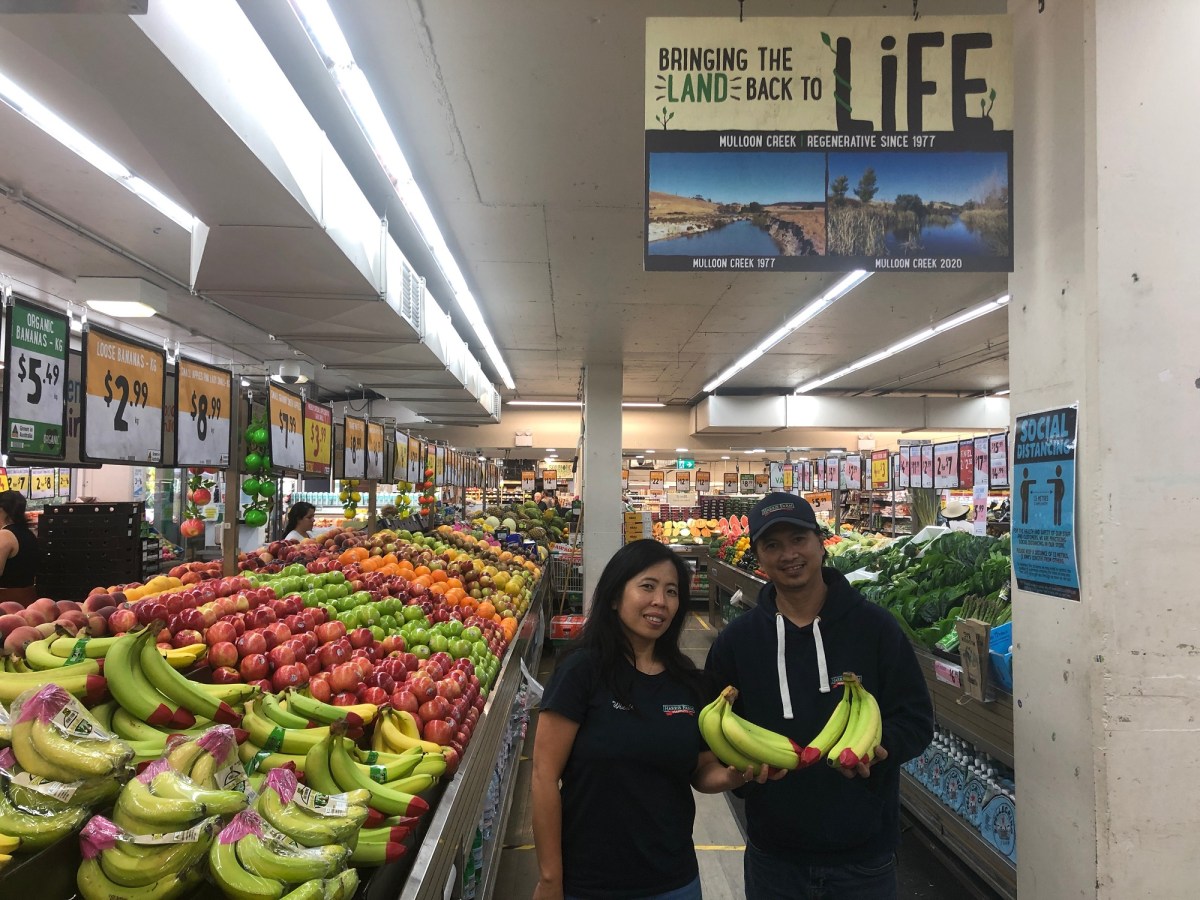Australian fresh food supply is under threat with continual soil degradation from traditional farming practices reducing the number of harvests left from homegrown soil, according to figures released by the United Nations.
In response, independent Australian grocery retailer, Harris Farm Markets is urging all consumers, retailers, suppliers, and farmers to take a closer look at farming practices and where their food comes from in a bid to educate Australians on the growing need for regenerative farming.
Harris Farm is pioneering an Australian-first education program on regenerative farming for high profile farmers, suppliers, and producers. The retailer has made a commitment to more than double its number of regeneratively farmed products from 120 to 240 by the end of 2021, and double this again by the end of 2022.
“Australia is an agricultural powerhouse, but if we don’t start to innovate the way we are producing, we will be at risk of irreversible damage to the soil and impact to our food supply and quality,” Harris Farm co-CEO, Angus Harris said.
“Put simply, at Harris Farm Markets we are urging all consumers to dig deep and question where their food is coming from and the impact this has on our future. If you are concerned about climate change, the most simple way to do your part is to shop for regeneratively farmed products.”
Traditional farming methods are responsible for more than one-quarter of the world’s greenhouse gas emissions.
Regenerative farming focuses on understanding the ecology of the landscape and biodiversity of the soil to reduce the impact of climate change. Rather than farming for a ‘product’, regenerative farming focuses on farming the soil instead, with the understanding that better quality soil will allow better harvests with less invasive methods and more nutrients kept in the ground. Benefits include increased water in the soil, maximised rain capture and soil rehydration.
The initiative to prioritise regenerative farmed products from Harris Farm Markets has been years in the making, engaging top sustainability experts, industry bodies and partners including Charlie Arnott, Land to Market Australia, the Mulloon Institute, YLAD Living Soils and regenerative beef producer and supplier, Provenir. In addition to consumer and supplier education, this extends to composting activity in selected Harris Farm stores.
The Harris Family Farm, Cox’s River Rest in Megalong Valley, NSW farms beef, lavender and rosemary. For the past 18 months, in partnership with the Mulloon Institute, Cox’s River Rest Farm has been undergoing its own regenerative farming initiative to re-establish its function, fertility, and resilience.
“We need to practice what we preach and set an example and high benchmark for other retailers as well as Australian farmers. Our food is only as sustainable as the environment, so implementing regenerative farming practices in our own farm was a high priority for us,” Harris said.
As a result, more than 40 tonnes of humus compost has been created from food waste collected from Harris Farm stores, with a special blend of additional minerals and nutrients added, and this has been used directly at Cox’s River Rest Farm.
Referred to as Harris Farm’s custom created ‘SOILBIOTIC’, this will be available in Harris Farm stores for a limited time to give Australians the chance to regenerate their own gardens and learn about regenerative farming in their own backyards.
“This is about every single Australian doing their part, whether it be at home, or at the supermarket checkout, or on their farm. With only 60 harvests of food supporting top-soil left, the responsibility for environmental impact lies with the choices we make every single day,” Harris concluded.

